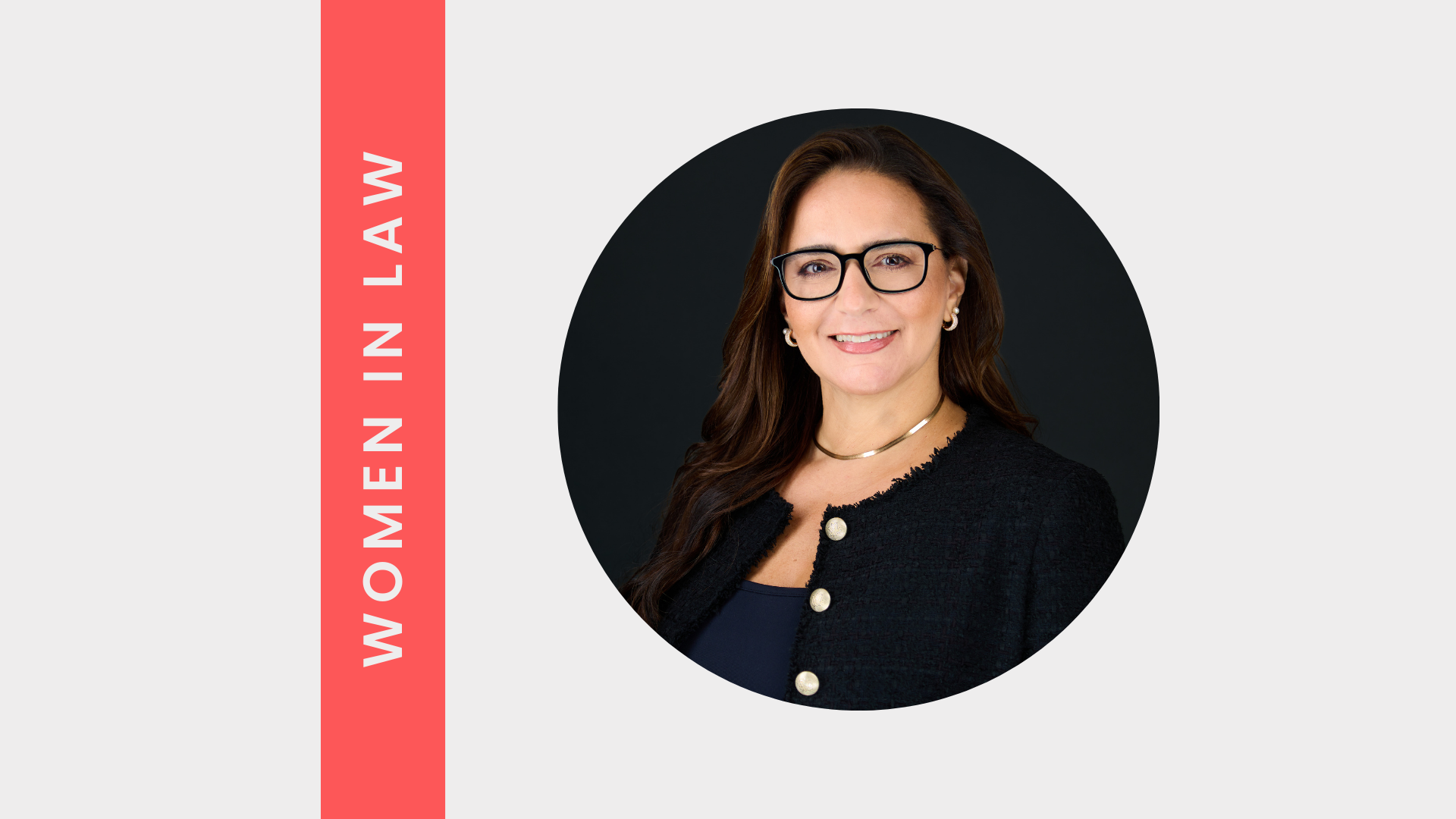Women in Law: Hannah Manning

Travers Smith is a leading full service law firm, with a wealth of experience in its areas of specialisation. The firm has a market-leading reputation for its international expertise in Asset Management, M&A and Dispute Resolution & Investigations.
Clients include publicly listed and private companies, financial institutions and private equity firms, and other business enterprises involved in large and complex UK and cross-border matters, transactions and disputes.
Tell us about your career progression to date
I joined Travers Smith in 2002 as a junior associate in the Tax team. In 2007, I was promoted to Senior Counsel, becoming one of the first lawyers in that role. I became a partner in 2017. I've been co-head of Graduate Recruitment at Travers since 2020 and I also sit on the firm's Diversity and Inclusion Board and our CSR Committee. My practice is centred on advising clients on M&A deals, primarily in the private equity space – I work with a number of the firm's key clients in that area, and I also head up the Tax team's management advisory practice, advising the senior directors of a range of companies on their equity incentive arrangements in the context of leveraged buyouts.
Looking back on your career, what are some key moments that have helped or hindered you in getting to where you are?
Most of the key moments that have helped me in my career have involved people being willing to give me an opportunity to progress. During my early years at Travers Smith, I worked for two really excellent partners (incidentally both female) who gave me exposure to some really great work and the opportunity to develop both my technical knowledge and my soft skills in managing transactions and clients. When the opportunity came up to become Senior Counsel, I pushed for that, as I didn't want partnership at that point, and the Tax partners supported me in that process and gave me a chance in that role to be part of their discussions and to learn about the management of the team. I had the same support and help when I finally decided to go for partnership and ever since – the team is very collegiate and supportive and there's an emphasis on ensuring that we all have a satisfying mix of really good quality client work, whilst sharing that work out in order to deepen the client relationships and ensure as much as possible that nobody is overburdened.
I wouldn't class them as a hindrance but having my two sons definitely meant that for a time, I pursued my career in a slightly different way, working part-time for several years and spending six months on a client secondment. Both of these experiences were really important in informing my decision to stay in private practice and to return to full-time work and become a partner on that basis.
Have you had a mentor or role model in your career? What is the value in having and/or being a mentor?
I personally have had relatively few formal mentoring relationships as a mentee, but this is something that is very much on offer at Travers Smith, indeed the firm has just launched its latest cycle of the lawyer mentoring programme. I myself have had a network of people who have supported me and have helped me to work through specific issues at various points in my career, not least Kathleen Russ, the first female Senior Partner at the firm, who I worked closely with for a number of years. In terms of role models, again, I like to take inspiration from a number of people around me – it's hard to name-check them all, but particular examples are our current Head of Tax, Emily Clark, who combines technical excellence with outstanding people skills, and Adam Orr, one of our Corporate partners who I've worked with on many transactions over the last ten years and is both super-bright and absolutely extraordinary at winning business and looking after clients.
I think mentoring relationships, formal or informal, can be really valuable because they allow you to benefit from your mentor's experience and insight and use that to inform your thinking about your own career. To get the best out of the relationship, it's important to work out what you need, and to find a mentor who you trust and who can speak to the issues that you are trying to address – for that reason, you may need a variety of mentor relationships to cover different areas. From a mentor's perspective, I'm always really interested to hear the experience of other people – it's a great reminder that my own experience and point of view is not the only one – and to try to contribute my own thoughts and insights in a way that is helpful and hopefully gives the mentee food for thought in tackling the issues that they are concerned with.
How do you balance long hours with your personal life successfully?
For me, it involves a number of things. Firstly, I've had to admit that my stamina isn't infinite, particularly as I've got older, and so I have to be selective about how I spend my time – it's impossible for me to work till late and then go out and party these days! For the same reason, I try to ringfence time to keep fit(ish) by running or going to the gym – this has had a very positive effect on my mental health, particularly during the pandemic. Secondly, I'm a believer in balancing office and home working – and the firm's Agile Working policy enables me to, work at home a couple of days a week and therefore be present and interact more easily with my family, much as being in the office makes interacting with my colleagues much simpler and more enjoyable. Thirdly, I try to carve out an evening in the working week when I finish a bit earlier than usual if I can – my husband does the same and we'll usually spend it chatting and catching up on the TV series that we should have watched six months earlier (one day we might actually make it to season 3 of Succession!)
What do you think the legal industry can do to improve diversity and inclusion?
Having been involved in graduate and lateral recruitment for several years, I think that there are huge opportunities in this area, if firms want to seize them. The pandemic has resulted in all graduate recruitment moving online, and what has been striking is how much the online law fairs have increased the number and diversity of candidates that we are interacting with – it has given the firm an opportunity to speak directly to students who we might not have seen in person on the traditional "milk round". There are also so many great organisations working with under-represented groups and using online events and social media to help their students gain an insight into legal careers and particular law firms. At Travers Smith we're seeing the use of contextual data in assessing applications, and once people join us, we have ever more sophisticated training, assessment, and work allocation processes in place.
All of these things are great in achieving greater fairness and diversity, but inclusion is a different and equally important goal. We can attract a diverse range of people to join us but keeping them depends on them feeling as though they have the opportunity and the means to succeed professionally and to thrive personally. What I think we need here is an approach that recognises that whilst there will be common experiences along the way that we can prepare people for, everyone who joins us has their own needs, and that what we provide in terms of work experience, training and support will be bespoke to that extent (and there is nothing unfair about that). Inclusion also has to run all the way through an organisation in order to be authentic, so being mindful of our own assumptions and biases is really important, as is talking to people about their own lives and experiences, which can often reveal gaps in our own imagination or understanding of their situation. This isn't always a comfortable process – it can be quite hard to be challenged when you feel like your intentions are good – but I've always found those difficult conversations to be the most valuable in understanding other people's perspectives.
What advice do you have for young women looking to make a career in your industry now?
First, do your homework. Research the firms or businesses that you are interested in and find out whether they have a decent number of women in senior roles – if they have, then look at who those women are and how they have got there; if not, then ask yourself why not. If you can speak to people at the firm directly, ask questions about this, and more generally about how they are addressing gender diversity.
Second, once you've found the role for you, it is so important to be proactive in asking for what you need in terms of training, experience, or coaching – don't just put your head down and put up with what you are given. Every promotion that I have had has come out of a conversation where I asked to be considered, so don't assume that if you quietly get on with things, your brilliance will automatically be recognised and rewarded.
Third, use the skills that you have in an authentic way – don't try to mimic anyone else's way of doing things. This is particularly important in a business development context, where the stereotype has historically been that you have to be prepared to drink hard and go to a lot of football/cricket/rugby matches – if that's your thing, then great, but if not, think about other types of marketing – sharing useful knowhow or data with key clients, doing some bespoke training for them, or organising a more original (or low key!) social event.
And finally – try to banish both guilt and perfectionism – two things that a lot of successful women seem to have in abundance! It is not always easy, but one tip to help with this is to speak to your closest friends and colleagues and ask them what they think that you do well as a colleague/manager/friend/parent. Whenever I've done this, I've always been struck by how positive people are about what I'm doing and how little they take note of the minor slip-ups!
For more Women in Law interviews, please click here.
Our latest insights







